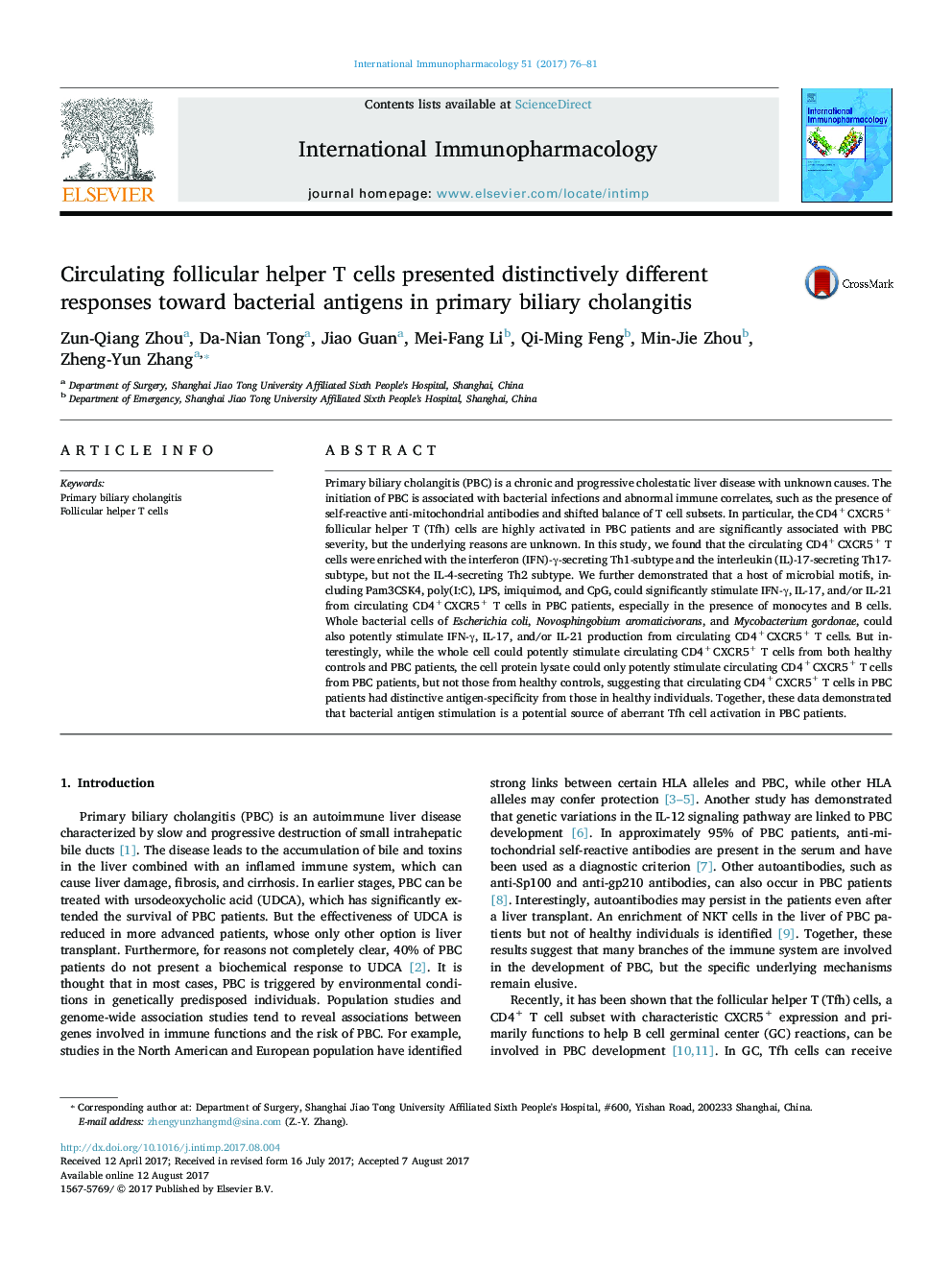| Article ID | Journal | Published Year | Pages | File Type |
|---|---|---|---|---|
| 5555218 | International Immunopharmacology | 2017 | 6 Pages |
â¢Follicular helper T (Tfh) cells were examined in primary biliary cholangitis (PBC).â¢Tfh in PBC were enriched with Th1 and the Th17 subtypes, but not Th2 subtype.â¢Pam3CSK4, poly(I:C), LPS, imiquimod, and CpG could activate Tfh cytokine secretion.â¢Whole bacteria and bacterial lysates could stimulate Tfh cells from PBC patients.
Primary biliary cholangitis (PBC) is a chronic and progressive cholestatic liver disease with unknown causes. The initiation of PBC is associated with bacterial infections and abnormal immune correlates, such as the presence of self-reactive anti-mitochondrial antibodies and shifted balance of T cell subsets. In particular, the CD4+ CXCR5+ follicular helper T (Tfh) cells are highly activated in PBC patients and are significantly associated with PBC severity, but the underlying reasons are unknown. In this study, we found that the circulating CD4+ CXCR5+ T cells were enriched with the interferon (IFN)-γ-secreting Th1-subtype and the interleukin (IL)-17-secreting Th17-subtype, but not the IL-4-secreting Th2 subtype. We further demonstrated that a host of microbial motifs, including Pam3CSK4, poly(I:C), LPS, imiquimod, and CpG, could significantly stimulate IFN-γ, IL-17, and/or IL-21 from circulating CD4+ CXCR5+ T cells in PBC patients, especially in the presence of monocytes and B cells. Whole bacterial cells of Escherichia coli, Novosphingobium aromaticivorans, and Mycobacterium gordonae, could also potently stimulate IFN-γ, IL-17, and/or IL-21 production from circulating CD4+ CXCR5+ T cells. But interestingly, while the whole cell could potently stimulate circulating CD4+ CXCR5+ T cells from both healthy controls and PBC patients, the cell protein lysate could only potently stimulate circulating CD4+ CXCR5+ T cells from PBC patients, but not those from healthy controls, suggesting that circulating CD4+ CXCR5+ T cells in PBC patients had distinctive antigen-specificity from those in healthy individuals. Together, these data demonstrated that bacterial antigen stimulation is a potential source of aberrant Tfh cell activation in PBC patients.
